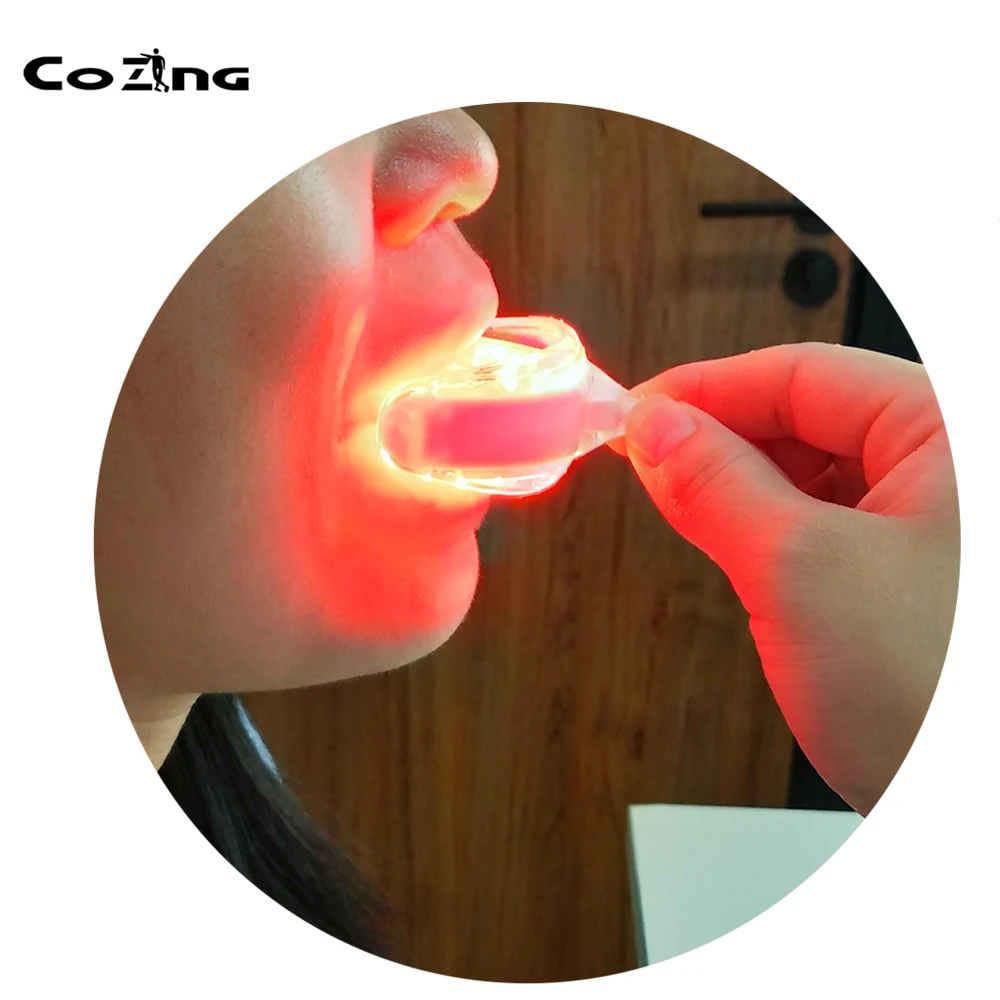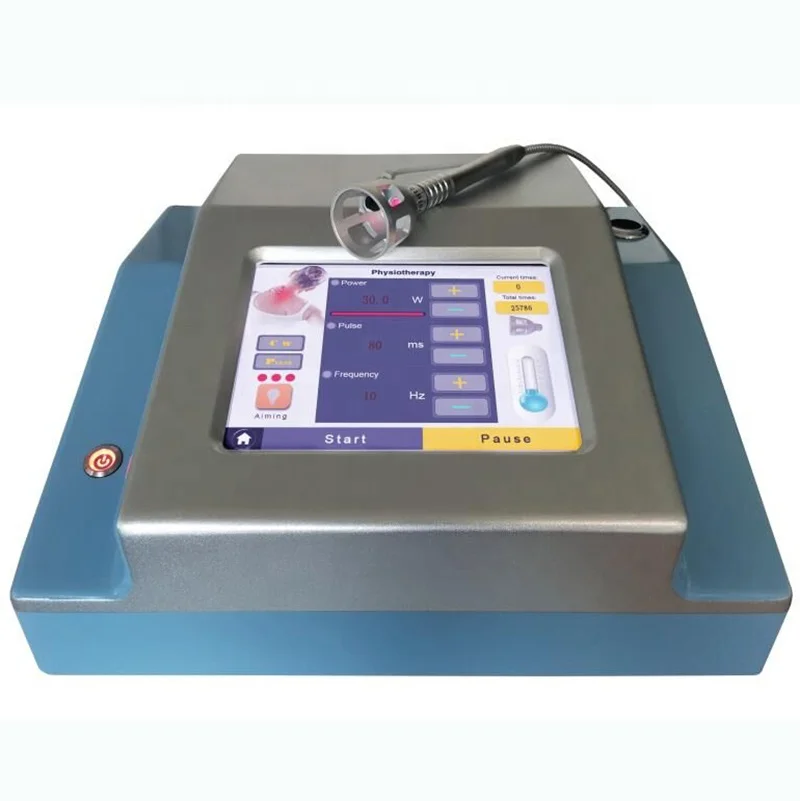Устройство для оральной терапии с красным светом устройство ухода за кожей
- Категория: >>>
- Поставщик: Wuhan Cozing Medical Devices Co. Ltd.
Сохранить в закладки 1600399423831:
Описание и отзывы
Характеристики
Hot Selling
What is the advantage of the COZING-USBT?
1. Portable
2. Compact
3. It can connect to the mobile (3 jack as the options)
4. Plug in, then the led will output automatically.
5. Photodynamic bactericidal therapyLed light therapy, no adverse reactions.
6. Bactericidal and anti-inflammation, physical therapy rehab. no long-term medication is required, and it is not affected by
patient compliance; short time, quick effect, little pain
2. Compact
3. It can connect to the mobile (3 jack as the options)
4. Plug in, then the led will output automatically.
5. Photodynamic bactericidal therapyLed light therapy, no adverse reactions.
6. Bactericidal and anti-inflammation, physical therapy rehab. no long-term medication is required, and it is not affected by
patient compliance; short time, quick effect, little pain

Indications
1.Sensitive teeth (dentin hypersensitivity)
2.Tooth & bone damage
3.Bacteria counts (tooth decay causing bacteria)
4.Oral thrush/candidiasis
5.Gum inflammation & oral wounds in soft tissue
6.Recovery from surgery (gums and jaw bones)
7.Relief toothache
8.Eliminate inflammation
3.Bacteria counts (tooth decay causing bacteria)
4.Oral thrush/candidiasis
5.Gum inflammation & oral wounds in soft tissue
6.Recovery from surgery (gums and jaw bones)
7.Relief toothache
8.Eliminate inflammation

Treatment Principle
Tooth sensitivity: can red light help?
Having a sensitive tooth is stressful and directly reduces quality of life – the afflicted person is no longer able to enjoy things like ice cream & coffee. Even just breathing through the mouth can cause pain. Most people afflicted have cold sensitivity, but a minority have hot sensitivity which is usually more serious.
There are dozens of studies on treating sensitive teeth (a.k.a. dentin hypersensitivity) with red and infrared light, with interesting results. The reason researchers were originally interested in this is because unlike the enamel layer of teeth, the dentin layer actually regenerates throughout life via a process called dentinogenesis. Some believe that red light has potential to improve both the speed and effectiveness of this process, working to improve metabolism in odontoblasts – the cells in teeth responsible for dentinogenesis.
Toothache: red light comparable to regular painkillers?
1.Red light therapy is well studied for pain problems. This is true for teeth, just as much as anywhere else in the body. In fact, dentists use low level lasers in clinics for this exact purpose.
2.The red light doesn’t just help with the symptoms of pain, saying that it actually helps on various levels to treat the cause (as already mentioned – potentially killing bacteria & rebuilding teeth, etc.).
Having a sensitive tooth is stressful and directly reduces quality of life – the afflicted person is no longer able to enjoy things like ice cream & coffee. Even just breathing through the mouth can cause pain. Most people afflicted have cold sensitivity, but a minority have hot sensitivity which is usually more serious.
There are dozens of studies on treating sensitive teeth (a.k.a. dentin hypersensitivity) with red and infrared light, with interesting results. The reason researchers were originally interested in this is because unlike the enamel layer of teeth, the dentin layer actually regenerates throughout life via a process called dentinogenesis. Some believe that red light has potential to improve both the speed and effectiveness of this process, working to improve metabolism in odontoblasts – the cells in teeth responsible for dentinogenesis.
Toothache: red light comparable to regular painkillers?
1.Red light therapy is well studied for pain problems. This is true for teeth, just as much as anywhere else in the body. In fact, dentists use low level lasers in clinics for this exact purpose.
2.The red light doesn’t just help with the symptoms of pain, saying that it actually helps on various levels to treat the cause (as already mentioned – potentially killing bacteria & rebuilding teeth, etc.).

WHAT IS RED LIGHT THERAPY?
1.Red light therapy, also called photobiomodulation or low-level light therapy, is the process of diffusing concentrated wavelengths of natural light into the skin to treat various ailments and conditions and to otherwise improve the functioning of the cells.
2.The treatment typically uses light-emitting diodes (LED) to safely deliver red and near-infrared (NIR) light deep into the skin to the cells, where it triggers a biochemical reaction that allows the mitochondria to use oxygen more efficiently to produce adenosine triphosphate (ATP).
3.ATP is a molecule that shuttles energy within the body’s cells. Also known as the body’s energy currency, it’s responsible for all cellular activity. And for various reasons - age, illness, poor lifestyle habits - ATP production can wane, which can have deleterious effects on any number of organs and tissues - including teeth and gums.
One of the well-documented effects of increased ATP production is improved blood circulation. This creates a positive cycle in which increased blood flow allows more oxygen to reach the cells. Mitochondria, having easier access to oxygen, is then able to increase ATP production even further, and so on.
4.Red light therapy also triggers a reaction called hormesis. The term is derived from the Greek word hormàein, meaning “to excite” or “to set in motion”, and it’s pretty spot on. The theory is that small doses of toxins can have a beneficial effect on the body. Research shows that red light therapy exerts temporary mild oxidative stress on the mitochondria which sends a signal to the cells to activate its defense systems. This anti-inflammatory and antioxidant response ultimately strengthens your cells, making them all the more capable of producing energy.
2.The treatment typically uses light-emitting diodes (LED) to safely deliver red and near-infrared (NIR) light deep into the skin to the cells, where it triggers a biochemical reaction that allows the mitochondria to use oxygen more efficiently to produce adenosine triphosphate (ATP).
3.ATP is a molecule that shuttles energy within the body’s cells. Also known as the body’s energy currency, it’s responsible for all cellular activity. And for various reasons - age, illness, poor lifestyle habits - ATP production can wane, which can have deleterious effects on any number of organs and tissues - including teeth and gums.
One of the well-documented effects of increased ATP production is improved blood circulation. This creates a positive cycle in which increased blood flow allows more oxygen to reach the cells. Mitochondria, having easier access to oxygen, is then able to increase ATP production even further, and so on.
4.Red light therapy also triggers a reaction called hormesis. The term is derived from the Greek word hormàein, meaning “to excite” or “to set in motion”, and it’s pretty spot on. The theory is that small doses of toxins can have a beneficial effect on the body. Research shows that red light therapy exerts temporary mild oxidative stress on the mitochondria which sends a signal to the cells to activate its defense systems. This anti-inflammatory and antioxidant response ultimately strengthens your cells, making them all the more capable of producing energy.

COMMON CAUSES OF POOR ORAL HEALTH:
· Unhealthy lifestyle: This can include poor brushing and flossing habits. It can also include such risk factors as smoking, drinking alcohol, excessive sugar consumption, and not drinking enough water.
· Poverty: Most dental procedures, including cleanings, are not covered by medicare. Many people simply cannot afford to pay out of pocket for cleanings, fillings, tooth extractions, and the like, often leading to unhealthy teeth and gums. Furthermore, many people living below the poverty line don’t have access to healthy food options, or even clean water in extreme cases, which may further worsen their oral health.
· Diabetes: People with diabetes are more likely to have oral issues, particularly gum disease, due to decreased blood flow to the gums. Higher blood sugar can also dry out the mouth, allowing bacteria to flourish.
· Some cancers: Many cancers as well as their treatments can cause a host of oral health problems, including dry mouth, thickened saliva, tooth decay, difficulty swallowing, infection, inflammation of the lining of the mouth, and gum disease.
· HIV/AIDS: Because HIV affects the immune system, it can cause many oral health issues, including tooth loss, ulcerative gum disease, dry mouth, gingivitis, canker sores, herpes simplex outbreaks, and oral Kaposi sarcoma (abnormal cancerous tissue growth), among others.
· Osteoporosis: Osteoporosis can cause damage to the jawbone, which supports the teeth. This in turn can result in tooth loss. Loss of bone density in the jaw also leaves the bone more susceptible to bacteria, increasing the risk of periodontal disease.
· Poverty: Most dental procedures, including cleanings, are not covered by medicare. Many people simply cannot afford to pay out of pocket for cleanings, fillings, tooth extractions, and the like, often leading to unhealthy teeth and gums. Furthermore, many people living below the poverty line don’t have access to healthy food options, or even clean water in extreme cases, which may further worsen their oral health.
· Diabetes: People with diabetes are more likely to have oral issues, particularly gum disease, due to decreased blood flow to the gums. Higher blood sugar can also dry out the mouth, allowing bacteria to flourish.
· Some cancers: Many cancers as well as their treatments can cause a host of oral health problems, including dry mouth, thickened saliva, tooth decay, difficulty swallowing, infection, inflammation of the lining of the mouth, and gum disease.
· HIV/AIDS: Because HIV affects the immune system, it can cause many oral health issues, including tooth loss, ulcerative gum disease, dry mouth, gingivitis, canker sores, herpes simplex outbreaks, and oral Kaposi sarcoma (abnormal cancerous tissue growth), among others.
· Osteoporosis: Osteoporosis can cause damage to the jawbone, which supports the teeth. This in turn can result in tooth loss. Loss of bone density in the jaw also leaves the bone more susceptible to bacteria, increasing the risk of periodontal disease.
Technical Parameters
Material: | oral part is medical grade silicone gel |
Wavelength: | 625nm ± 20nm |
Max. Output power: | 3200mW |
Diode: | LED |
Jack: | 3 in 1 |
Package:
Main unit with the USB wire*1+manual book*1+gift box*1
Why Choose Us

The related products
Похожие товары
Ifanplus производитель Китай 16 мм Женский локтя из хромированной латуни фитинг Pex Al Pex трубы фитинги
1,15 $ - 1,21 $
Оптовая продажа с завода, щетка для очистки бутылок с водой объемом 5 галлонов
Лазерное устройство Yting для удаления венозных сосудистых звездочек и экземы, Нм
Универсальный колесный инструмент TOCO для транспортировки удобной бытовой мебели, тяжелый слайдер, экономия времени и трудозатрат
11,50 $ - 12,50 $
Sipanuo 7 шт. BPA бесплатно многоразовые Зерновые закуски из прозрачного пластика сухой контейнеры для хранения продуктов, оптовая продажа
Горелка для обнаружения больницы (4 в 1) CMV /Rubella/токсиплазма/реагент для быстрого теста на герпес
1,40 $
Новинка, недорогая легкая прищепка с высоким крутящим моментом, крутящаяся пружина
Новые поступления
Новинки товаров от производителей по оптовым ценам
Hantek щупы осциллографа автоматический Тестовый Кабель Ht30a Bnc к банану двойная Банановая головка многоцелевое автомобильное
3,10-3,44 $
Горячая распродажа ручная работа традиционная деревянная урна для домашних животных квадратная коробка золы собак и кошек персонализированная Лучшая цена
Промышленная серия CL Бесшумная цепь стальная зубчатая Фланцевая контактная звездочка соединяющая бесшумные цепи
1-1,50 $
Irdmco экологически чистый минималистичный прямоугольный деревянный ящик для хранения стеллаж поделок и детских игрушек Домашняя мебель гостиной
Технология сенсорных перчаток и аксессуары для детей от дождя холода M725132-334
1,07-1,40 $
GY6 6 Pin AC гоночный CDI для CG125 CG250 двигателя Dirt Pit Bike ATV Quad
Парик из синтетического волокна для косплея
9,85-12,66 $
Прямая Продажа с фабрики 65 см Модернизированный подвесный стерео голографический проектор светодиодный вентилятор высокой четкости экран 3D дисплей
155-185 $

























